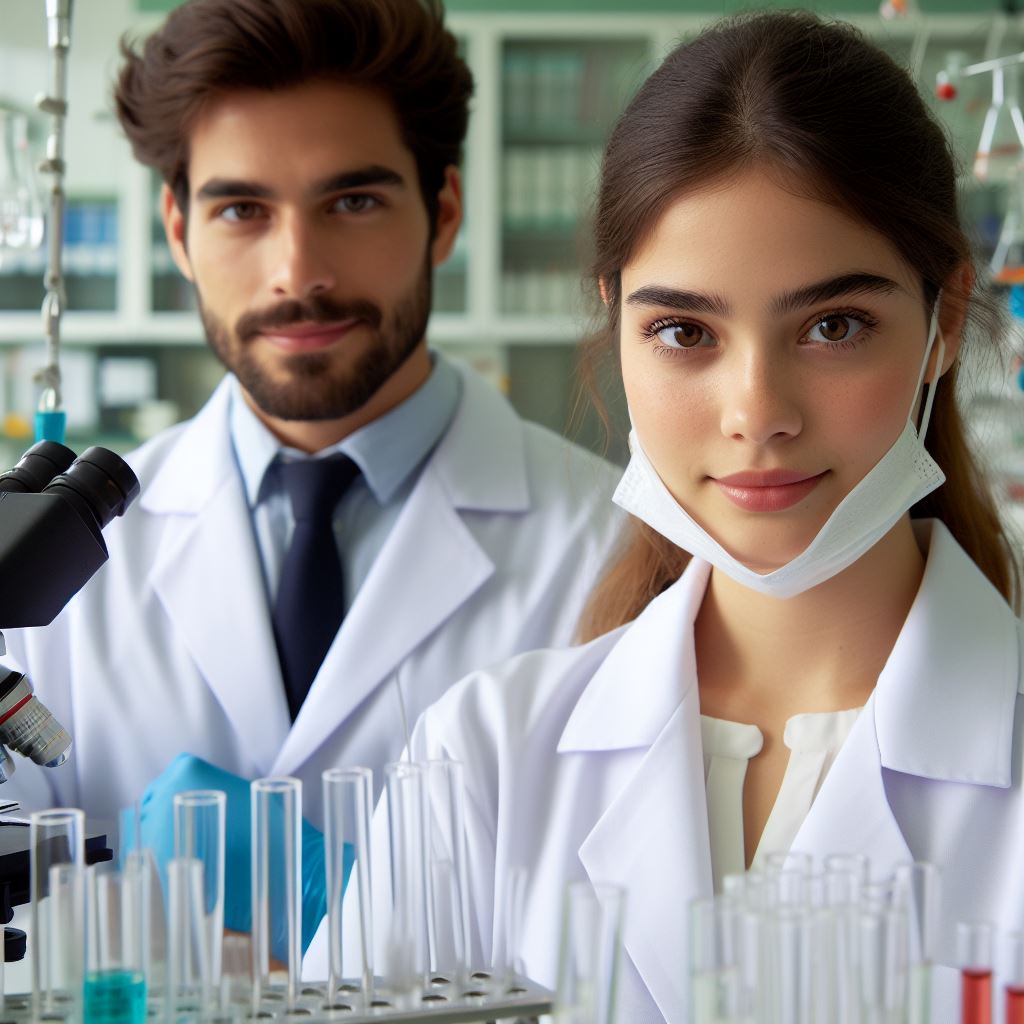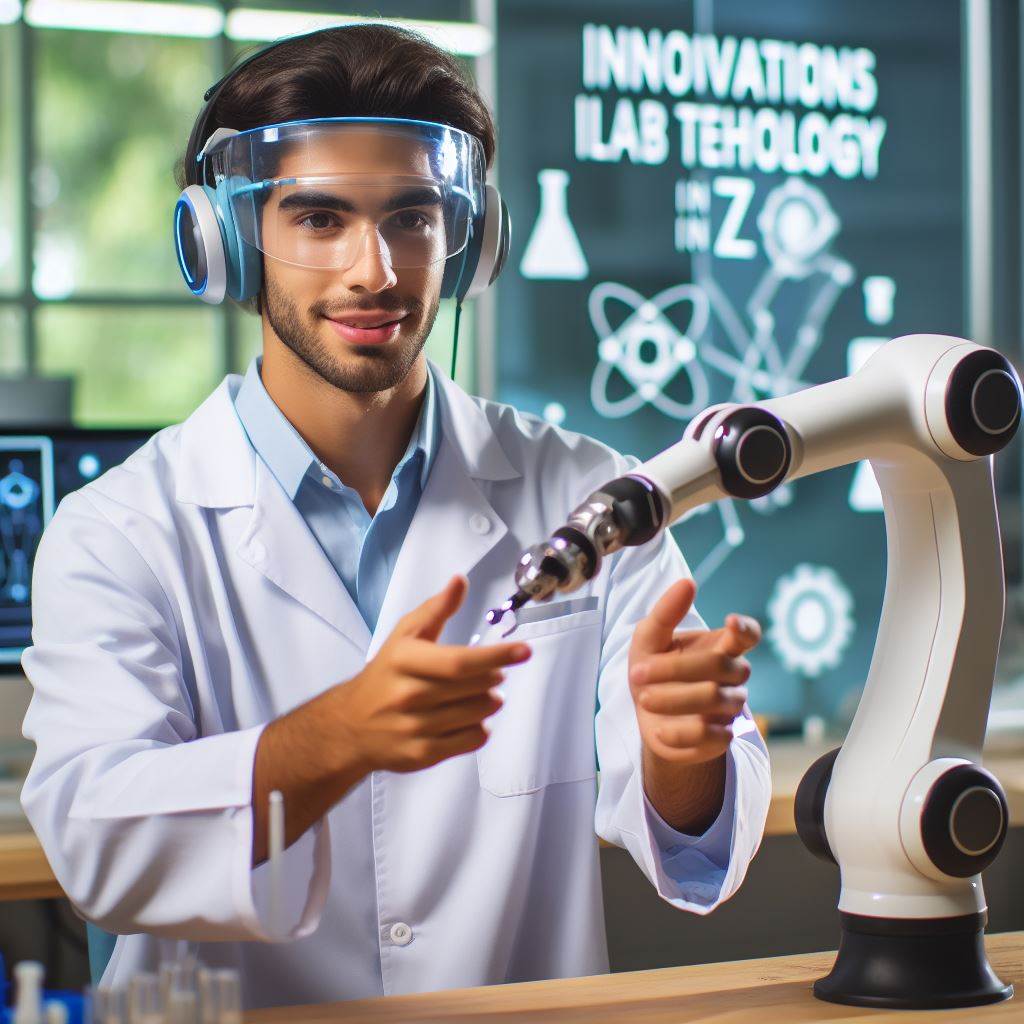Introduction
Lab equipment skills are essential for Australian technicians. They ensure accuracy, efficiency, and safety in scientific endeavors. In today’s rapidly evolving world of science and technology, mastering these skills is paramount.
From precision measurement to intricate instrumentation handling, technicians play a crucial role in various industries such as pharmaceuticals, biotechnology, and environmental science.
The ability to operate, troubleshoot, and maintain lab equipment is fundamental for conducting experiments, analyzing data, and advancing research.
With the right expertise, technicians contribute significantly to innovation and discovery. Therefore, investing in training and honing these skills is not just beneficial but necessary for the advancement of science and technology in Australia.
In this blog series, we’ll explore key lab equipment skills, techniques, and best practices tailored to Aussie techs, empowering them to excel in their roles and make meaningful contributions to the scientific community.
Overview of lab equipment skills
Lab technicians play a crucial role in scientific research and experimentation. To effectively carry out their responsibilities, they must possess a wide range of lab equipment skills.
In this section, we will provide an overview of the various types of lab equipment commonly used by technicians and discuss the significance of having proficiency in operating these instruments.
Furthermore, we will emphasize the role of lab equipment skills in ensuring the accuracy and reliability of experimental results.
Microscopes
Microscopes are essential tools in a lab, allowing technicians to observe samples at a magnified level. Proper operation of microscopes is crucial for identifying and analyzing microscopic structures accurately.
Centrifuges
Centrifuges are used to separate different components of a liquid sample based on their densities. Proficiency in operating centrifuges ensures proper separation and prevents contamination between samples.
Pipettes
Pipettes are precision tools used to measure and transfer small volumes of liquid. The accurate use of pipettes is vital for conducting experiments with precision and reducing measurement errors.
Balances
Balances are used to measure the mass of substances accurately. Technicians must be skilled in calibrating and using balances to obtain reliable results and ensure the correct amount of substances for experiments.
Incubators
Incubators provide a controlled environment for cultures and samples to grow and develop. Proficiency in operating incubators is essential to maintain the desired temperature, humidity, and atmospheric conditions for successful experimentation.
Spectrophotometers
Spectrophotometers measure the intensity of light transmitted or absorbed by a sample. Technicians skilled in using spectrophotometers accurately can obtain precise data about the concentration of substances in a sample.
Autoclaves
Autoclaves are used to sterilize lab equipment and supplies. Proper operation of autoclaves is crucial to ensure the elimination of any potential contaminants that could compromise experimental results.
pH Meters
pH meters are essential for measuring the acidity or alkalinity of a solution accurately. Proficiency in operating pH meters ensures the correct adjustment and monitoring of pH levels during experiments.
Having proficiency in operating lab equipment is of utmost significance for technicians. It directly affects the accuracy and reliability of experimental results. Here are a few reasons why lab equipment skills are crucial:
Consistency
Proper operation of lab equipment ensures consistent and repeatable results, allowing scientists to compare data across experiments accurately.
Efficiency
Technicians with proficient lab equipment skills can work efficiently, saving time in setting up experiments and collecting data. This enables them to contribute more effectively to research projects.
Safety
Improper use of lab equipment can pose risks to both technicians and the integrity of experiments. Proficient skills minimize the chances of accidents and maintain a safe working environment.
Cost-effectiveness
Mishandling lab equipment can lead to damage or malfunction, resulting in extra expenses for repairs or replacements. Proficiency in operation reduces such incidents, saving resources.
Your Personalized Career Strategy
Unlock your potential with tailored career consulting. Get clear, actionable steps designed for your success. Start now!
Get StartedIn a nutshell, lab equipment skills are vital for Aussie techs to excel in their roles and contribute to scientific research.
A comprehensive understanding of various instruments, coupled with proficiency in their operation, ensures the accuracy and reliability of experimental results.
By emphasizing the significance of these skills, technicians can elevate the quality of their work and enhance overall scientific progress for a better future.
Lab Equipment Skills for Aussie Techs
Lab technicians play an integral role in the scientific community, ensuring accurate and reliable results through their knowledge and expertise.
One crucial aspect of their role is mastering essential lab equipment skills. In this section, we will discuss three essential skills every Aussie tech should possess.
Calibration and Maintenance of Lab Instruments
- Regular calibration and maintenance of lab instruments are vital to ensure accurate measurements.
- Technicians need to understand the calibration process and follow manufacturer guidelines meticulously.
- Calibration involves adjusting lab instruments to a standard reference, enhancing measurement precision.
- Routine maintenance, such as cleaning and lubricating, helps to prolong the lifespan of lab instruments.
- Aussie techs should maintain detailed records of calibration dates and performed maintenance for quality assurance.
- By mastering calibration and maintenance skills, lab technicians contribute to reliable scientific outcomes.
Proper Handling and Storage Methods
- Proper handling of lab equipment ensures the integrity of samples and safety for technicians.
- Aussie techs must be familiar with handling precautions specific to each instrument.
- Lab items should be carried securely, avoiding unnecessary exposure to heat, moisture, or contaminants.
- Storage methods depend on the equipment, with temperature, light, and humidity considerations.
- Clear labeling and organization of stored items enable easy retrieval, preventing mix-ups and potential hazards.
- Adhering to proper handling and storage methods guarantees accurate experimental outcomes and a safe working environment.
Adherence to Safety Protocols
- Lab safety protocols are paramount to safeguard technicians, prevent accidents, and maintain data integrity.
- Aussie techs should always prioritize personal protective equipment (PPE) usage, including gloves, goggles, and lab coats.
- Before operating any lab instrument, technicians should review safety manuals and understand potential risks.
- Regular safety audits and inspections help identify and address any faulty equipment or hazardous conditions.
- Proper disposal of hazardous waste, such as chemicals or biological materials, is crucial to protect the environment.
- By strictly adhering to safety protocols, Aussie techs contribute to a culture of safety and prevent accidents in the lab.
In general, mastering essential lab equipment skills is vital for Aussie techs to excel in their roles. Calibration and maintenance ensure accurate measurements, while proper handling and storage methods preserve sample integrity.
Adhering to safety protocols guarantees technician safety and data reliability. By acquiring and honing these skills, lab technicians play an instrumental role in advancing scientific research and discovery.
Read: Networking Tips for Lab Technicians
Training and Development Opportunities
When it comes to lab equipment skills, it is crucial for Aussie techs to constantly improve and stay updated with the latest advancements.
This can be achieved through various training and development opportunities, such as formal training programs, workshops, and seminars.
Explore the Availability of Formal Training Programs
Formal training programs provide a structured learning environment for Aussie techs to enhance their lab equipment skills.
These programs offer comprehensive courses that cover a wide range of topics, from basic lab safety to advanced equipment operation.
By enrolling in these training programs, techs have the opportunity to learn from experienced instructors who can provide valuable insights and practical knowledge.
The curriculum is designed to ensure that participants gain a solid understanding of lab equipment and its applications.
Moreover, formal training programs often provide hands-on experience, allowing techs to practice using different types of lab equipment.
This practical training enhances their proficiency and ensures that they are well-prepared to handle complex tasks in a laboratory setting.
The Benefits of Participating in Workshops and Seminars
In addition to formal training programs, Aussie techs should also consider participating in workshops and seminars. These interactive sessions offer numerous benefits for professional growth and skill enhancement.
Workshops provide a platform for techs to collaborate with peers, share experiences, and learn from each other. They create an environment where techs can discuss challenges, explore innovative solutions, and gain new perspectives.
Moreover, workshops often feature industry experts who deliver insightful presentations on the latest trends and advancements in lab equipment.
These sessions keep techs updated with cutting-edge technology, enabling them to stay ahead of the curve in their field.
Seminars, on the other hand, offer a focused learning experience on specific topics. They allow techs to delve deeper into areas of interest and acquire specialized knowledge.
Seminars also provide networking opportunities, as attendees can connect with professionals and build valuable relationships.
The Importance of Staying Updated with Advancements in Lab Equipment Technology
Advancements in lab equipment technology are constantly reshaping the field, making it crucial for Aussie techs to stay updated.
By staying abreast of the latest developments, techs can ensure that they are equipped with the necessary skills to work with state-of-the-art equipment.
Staying updated with advancements in lab equipment technology also helps techs improve lab efficiency and productivity.
By utilizing cutting-edge equipment and techniques, techs can streamline processes, reduce errors, and achieve optimal results in their work.
Stand Out with a Resume That Gets Results
Your career is worth more than a generic template. Let us craft a resume and cover letter that showcase your unique strengths and help you secure that dream job.
Get HiredFurthermore, staying updated with lab equipment advancements opens doors to new opportunities. It allows techs to adapt to changing industry demands and take on more challenging projects.
Techs who possess advanced skills and knowledge are highly sought after in the job market, increasing their career prospects.
In review, training and development opportunities play a crucial role in enhancing lab equipment skills for Aussie techs.
Formal training programs, workshops, and seminars provide avenues for continuous learning, collaboration, and skill enhancement.
Staying updated with advancements in lab equipment technology ensures that techs are well-equipped to excel in their field and embrace new opportunities.
Read: Lab Safety: A Must for Aussie Techs
Explore Further: Aussie Wildlife Conservation and Enviro Scientists
Case Studies: Technicians Excelling in Their Careers with Lab Equipment Skills
In the field of science and technology, laboratory technicians play a crucial role in conducting experiments, analyzing samples, and ensuring the smooth operation of laboratories.
However, their ability to excel in their careers often depends on their proficiency in handling lab equipment. Below are some success stories highlighting how technicians’ lab equipment skills propelled their professional growth.
Technician A: Mastering Lab Equipment for Personal Development
- Technician A joined a research facility as an inexperienced lab assistant.
- Through continuous learning and training, they honed their lab equipment skills.
- Proficiency in handling complex machinery allowed Technician A to assist senior scientists.
- With time, they became a prominent figure in their research team.
This case study demonstrates that possessing strong lab equipment skills opens doors for innovative collaboration and personal growth.
Technician B: Enhancing Efficiency and Troubleshooting with Lab Equipment Skills
- Technician B was part of a pharmaceutical company and faced frequent equipment malfunctions.
- By gaining in-depth knowledge of lab equipment, they became adept at troubleshooting issues quickly.
- Their ability to fix problems efficiently saved valuable resources and improved overall productivity.
- Recognizing their expertise, Technician B was promoted to a managerial role in the quality control department.
This example highlights how developing strong lab equipment skills not only benefits individual technicians but also boosts organizational efficiency.
The Impact of Lab Equipment Skills on Professional Growth
Proficiency in handling lab equipment has a profound impact on technicians’ professional growth. Here are a few ways:
- Improved Productivity: Technicians with advanced lab equipment skills can handle complex experiments with ease, enhancing overall productivity.
- Enhanced Troubleshooting: Strong knowledge of lab equipment helps technicians identify and resolve issues promptly, minimizing downtime.
- Innovative Problem-Solving: Proficient technicians can leverage their skills to devise creative solutions, leading to breakthrough discoveries.
- Expanded Responsibilities: Acquiring expertise in lab equipment often opens doors for promotions to supervisory or managerial roles.
Indeed, technicians equipped with strong lab equipment skills are invaluable assets to any scientific or research institution. Their proficiency not only streamlines daily laboratory operations but also leads to groundbreaking outcomes.
Examples of Lab Equipment Skills Improving Efficiency
Let’s delve into real-life scenarios where technicians’ lab equipment skills greatly enhanced efficiency:
Accurate Measurement and Sampling
By precisely operating lab equipment, technicians ensure accurate measurement of samples, reducing experimental errors.
Minimizing Test Duration
Proficient technicians can swiftly set up and calibrate lab equipment, saving valuable time during tests and experiments.
The Art of Maintenance
Technicians well-versed in lab equipment maintenance can preemptively identify and address issues before they cause significant problems.
Equipment Optimization
By understanding the capabilities and limitations of lab equipment, technicians optimize its usage, enhancing overall productivity.
Transform Your LinkedIn for Maximum Impact
Elevate your professional brand with a LinkedIn profile that attracts recruiters, showcases your expertise, and maximizes opportunities. Stand out in your industry with a profile built for success.
Boost ProfileIn short, mastering lab equipment skills has a profound impact on technicians’ professional growth and organizations’ efficiency.
Through case studies, we have seen how lab equipment expertise empowers technicians to excel and achieve career advancement.
These skills not only enhance accuracy and troubleshooting capabilities but also foster innovation and creativity in the laboratory setting.
Read: The Future of Lab Tech Careers in Oz

Tips for Acquiring and Improving Lab Equipment Skills
When it comes to acquiring and improving lab equipment skills, there are several key strategies that can help Australian techs excel in their field. From hands-on experience to online resources, these tips can pave the way for success.
The Importance of Practice and Hands-on Experience
- Engage in practical sessions to gain hands-on experience with various lab equipment
- Practice using different instruments and tools to develop proficiency and familiarity.
- Participate in lab-based projects to apply theoretical knowledge into real-life scenarios.
- Seek opportunities for internships or volunteering in laboratories to gain practical exposure
Remember, practice makes perfect, and honing your skills in a practical environment is crucial for success in the lab equipment field.
Exploring Online Resources and Tutorials for Self-Learning
- Utilize online platforms that offer tutorials and courses specifically designed for lab equipment skills.
- Watch video demonstrations to understand the proper usage and operation of different equipment.
- Participate in online forums and communities to seek advice from experienced professionals.
- Join webinars or virtual workshops to stay updated with the latest trends and advancements.
With the abundance of online resources available, self-learning has become more accessible than ever before. Take advantage of these tools to expand your knowledge and enhance your expertise in lab equipment.
Tips for Networking and Connecting with Experienced Professionals
- Attend industry conferences, workshops, or seminars to meet experts in the lab equipment field.
- Join professional organizations or associations that provide opportunities for networking.
- Engage in online communities through social media platforms to connect with industry leaders.
- Seek mentorship from experienced professionals who can guide you in your career journey.
Building a strong network of contacts in the field can open doors to new opportunities and provide valuable insights into lab equipment skills.
Acquiring and improving lab equipment skills is essential for Australian techs to excel in their profession.
By prioritizing hands-on experience, exploring online resources, and networking with experienced professionals, techs can continue to enhance their expertise and stay at the forefront of the industry.
Remember, the journey to mastering lab equipment skills is ongoing, and a commitment to continuous learning and improvement is key.
With dedication and the right strategies in place, Australian techs can thrive in the dynamic and challenging field of lab equipment.
Read: Quantum Physics Developments in Australia
Conclusion
In closing, lab equipment skills are crucial for Australian technicians. These skills enable them to perform their tasks efficiently and accurately, ensuring reliable and precise results.
By acquiring and improving these skills, technicians open up a world of potential career growth opportunities.
Having expertise in lab equipment operation allows technicians to take on more advanced roles, such as laboratory management or research positions.
It also increases their market value and makes them more desirable candidates for future job prospects.
Therefore, it is essential for readers to invest time and effort in developing their expertise in lab equipment operation. This investment will pay off in terms of career advancement and job satisfaction.
Continuous learning and staying updated with the latest advancements in lab equipment will ensure technicians remain competitive in the industry.
So, whether it’s attending training programs, participating in workshops, or simply dedicating time to practice and enhance their skills, technicians should prioritize the development of their lab equipment expertise.
By doing so, they not only contribute to their own professional growth but also play a vital role in the success and progress of the Australian scientific community as a whole.




